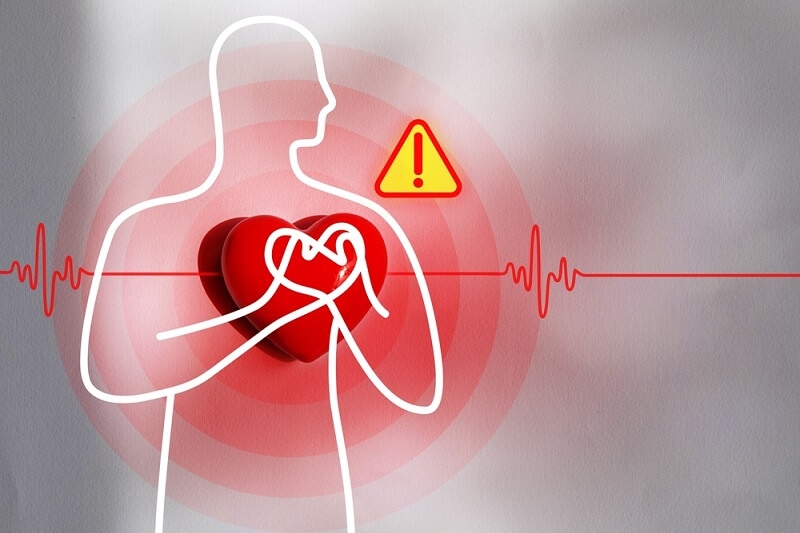
High blood pressure health is more than a medical issue—it's a life-saving awareness matter that touches the lives of millions across the globe. Hypertension awareness, patient lifestyle factors, and chronic heart risks are only a few things that can make all the difference between a healthy tomorrow and significant health problems. By getting proper health education and helpful prevention tips, patients can take charge of their blood pressure before it causes chronic disease.
High blood pressure health today is more essential than ever before. Increasing levels of stress, unhealthy eating, and sedentary lifestyles have transformed hypertension into one of the world's most silent killers. If not controlled, it can unleash heart disease, kidney issues, and even stroke. That is why patient lifestyle modification is a priority, and effective prevention measures must be a prime concern.
Awareness of hypertension is crucial in high blood pressure health management. Most individuals live for years without knowing their blood pressure remains constantly higher than what is considered healthy. This unawareness usually leads to delayed diagnosis and treatment, significantly raising heart hazards.
Hypertension awareness is not only about medical checks; it's about informing people about symptoms, cause, and the long-term harm of the consequences of untreated high blood pressure. Monitoring at home or in checkups regularly means early detection. When they know their numbers, patients can feel empowered to make lifestyle changes to reduce their health risks.
High blood pressure health problems are caused by a patient's daily choices of diet, excessive salt intake, being sedentary, and being compromised in stress control. By changing poor quality habits, a patient can avert harm to their overall health and reduce the risk to their heart.
Patients who actively adjust their lifestyles significantly reduce their heart risks. When someone is lifestyle-oriented and health-educated, they will own their health rather than rely on medications alone. High blood pressure health is more than a number; it is about protecting against irreversible harm to the heart. For instance, for every change suffered—even if high blood pressure is not acutely detrimental—left unchecked, it puts the heart to work, and your arteries and organs endure stress for months and years.
Hypertension awareness campaigns highlight that even mild blood pressure increases heart risks. Reducing these risks with patient lifestyle modification and prevention strategies significantly reduces long-term complications.

Health education is among the most powerful means of enhancing high blood pressure health outcomes. Patients are likely to follow up on prevention advice and changes in their lifestyle if they are educated on how hypertension works.
Hypertension education campaigns at schools, workplaces, and communities are vital to developing a culture of awareness. They simultaneously educate patients and empower them to be accountable for their health.
Hypertension prevention is less complicated than dealing with its effects. Consistent and straightforward prevention recommendations can improve blood pressure and reduce cardiovascular risk.
These prevention strategies help consistently provide better long-term health outcomes and decrease the need for medication.
Community-based hypertension awareness programs enhance the management of high blood pressure through support systems. Blood pressure screening at no charge, educational programs and workshops, and health seminars for patients have a supportive effect that reduces the embarrassment of discussing health matters.
The programs reach vulnerable populations early by linking awareness to readily available prevention advice. Patients actively engage in health education practices, significantly reducing their personal risk of heart-related disease.
Physicians, nurses, and health educators are on the front lines of high blood pressure care. They not only diagnose and treat but also encourage patient lifestyle changes and provide real-world prevention advice.
Healthcare practitioners have a vital role in:
Achieving healthy blood pressure requires a proactive and educated practice. Patients can better reduce their risk of heart issues by practicing hypertension education, modifying their lifestyles, and participating in practical education and prevention. You can create a better tomorrow.
Hypertension is no longer something to ignore. With the correct approaches, patients can take control of their blood pressure, heart health, and longevity. High blood pressure health today is investing in tomorrow.
Q1: What is the primary reason for poor high blood pressure health?
A: Poor diet, excessive salt consumption, physical inactivity, stress, and genetic tendencies are the leading causes.
Q2: How is awareness of hypertension beneficial?
A: Hypertension awareness leads to early detection and encourages patient lifestyle modification that lowers heart risks.
Q3: Is high blood pressure health solely managed through lifestyle modification?
A: In most instances, yes. Tips for prevention, such as healthier eating, exercise, and stress management, dramatically reduce blood pressure. In some patients, though, medication may still be needed.
Q4: Why is health education crucial in controlling hypertension?
A: Health education equips patients with the information they need to make favorable lifestyle decisions, avoid complications, and control their condition proactively.
Q5: What tips for prevention are simplest for starters to follow?
A: Begin by reducing salt, walking daily, and consuming more water. These little things go a long way in high blood pressure well-being.
This content was created by AI